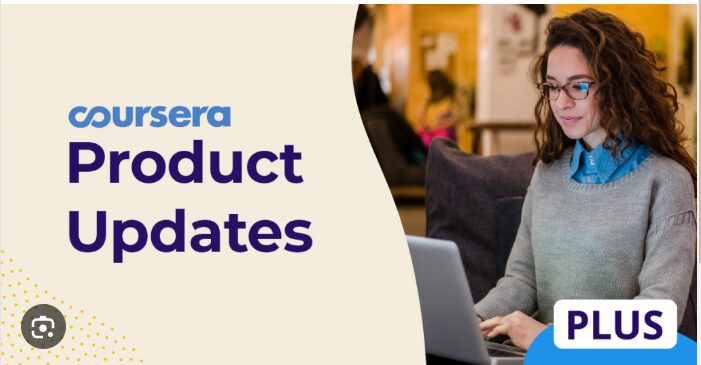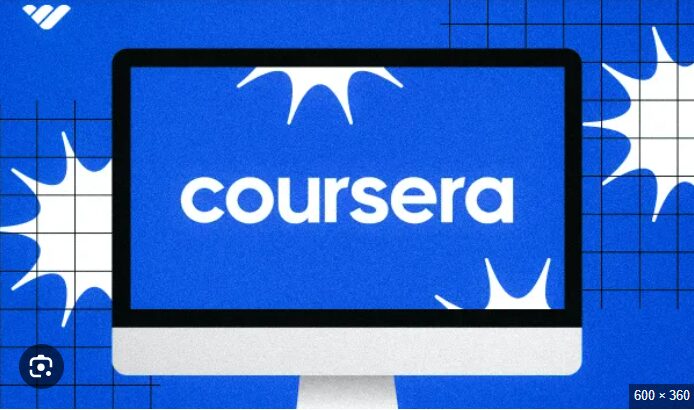Introduction to Coursera and its popularity
Coursera has transformed the way we think about education. With its vast array of online courses, it has become a go-to platform for learners around the globe. From tech enthusiasts to business professionals, people are flocking to Coursera to upskill and stay competitive in today’s fast-paced world.
But what makes this platform so appealing? Is it just the convenience of learning from anywhere at any time? Or is there more beneath the surface that adds value to your educational journey? As you navigate through different course offerings, understanding Coursera’s pricing structure becomes essential.
In this blog post, we’ll dive into everything you need to know about Coursera’s pricing options, compare free trials with paid courses, explore the significance of certificates, and offer tips for making the most out of your experience. Whether you’re considering a single course or planning an entire learning path, we’ve got insights that will help illuminate your choices on this popular online platform.
Coursera has taken the online learning world by storm. With its vast array of courses offered by top universities and organizations, it’s no wonder that millions are flocking to this platform. From programming and data science to personal development and arts, Coursera caters to a diverse audience eager to expand their skills.
What sets it apart? The blend of high-quality content with flexible learning options makes education accessible like never before. Whether you’re a busy professional looking for career advancement or a curious learner wanting to explore new interests, Coursera provides an opportunity tailored just for you.
But how does pricing work on such a versatile platform? Are free trials worth it, or should you invest in certificates? Let’s dive into the details and uncover what makes Coursera not only popular but also valuable for learners worldwide.
The different pricing options available on Coursera
Coursera offers a variety of pricing options to cater to diverse learning needs. You can start with free courses, which allow you to explore subjects without any financial commitment. These are perfect for those looking to dip their toes into a new field.
If you’re seeking more comprehensive learning, many courses provide the option to pay for access. These paid courses often include additional resources and assignments that enrich your educational experience.
For individuals aiming for deeper knowledge, specializations bundle several related courses at a reduced rate. This format encourages mastery over time while offering cost savings compared to purchasing each course individually.
Another attractive option is Coursera Plus, an annual subscription model granting unlimited access to thousands of courses. This choice is ideal for avid learners planning on taking multiple classes throughout the year. Each pricing tier has its unique appeal based on your goals and budgetary constraints.

Comparing the value of free trials vs paid courses
Free trials on Coursera can be enticing. They offer a glimpse into the course content without upfront costs. This is ideal for those who want to test the waters before diving in.
However, free trials often come with limitations. You may not have access to all materials or assignments. The experience can feel rushed, leaving you craving more depth and engagement.
Paid courses present a different value proposition. With full access to resources, learners can immerse themselves completely in the subject matter. Additionally, many paid options provide personalized feedback from instructors.
Certificates are another critical aspect of this comparison. While they usually accompany paid courses, earning one after completing a trial might be unlikely.
Weighing these factors helps clarify whether you’re seeking exploration or serious commitment in your learning journey on Coursera.
Certificates and their importance in online learning
Certificates play a crucial role in online learning. They serve as tangible proof of your commitment and knowledge. When you complete a course on Coursera, you earn something more than just satisfaction.
Employers often look for evidence of skills. A certificate can enhance your resume and set you apart from other candidates. It shows that you’ve invested time and effort into professional development.
In addition, many learners use certificates to validate their expertise in specific areas. This is especially valuable in fast-evolving fields like technology or business where staying current matters immensely.
Moreover, the sense of achievement from earning a certificate boosts motivation. It encourages lifelong learning by providing goals to strive toward, making the educational journey rewarding beyond mere content consumption.
Certificates hold significant value in the realm of online education. They serve as tangible proof of your achievements and commitment to learning. When you complete a course on Coursera, earning a certificate can enhance your resume and LinkedIn profile.
Employers often look for candidates who demonstrate continuous learning. A certificate signals that you’re proactive about developing new skills. It sets you apart from other applicants in a competitive job market.
Moreover, these credentials can lead to better career opportunities and salary increases. Many professionals find that adding relevant certificates boosts their credibility within their industry.
Coursera’s partnerships with leading universities also add weight to its certificates, making them recognizable globally. Whether you’re pursuing personal growth or professional advancement, investing time in courses from reputable sources certainly pays off.
Ultimately, understanding the pricing structure alongside the potential benefits of certification helps you make informed decisions about your educational journey on platforms like Coursera.

Factors to consider when choosing a course on Coursera
When selecting a course on Coursera, think about your learning goals. What skills do you want to develop? Pinpointing clear objectives can guide your choice.
Next, consider the duration and intensity of the course. Some offerings span just a few weeks, while others may take months. Make sure it fits into your schedule.
Don’t overlook the instructors’ credentials. Courses taught by industry experts or university professors often provide deeper insights and richer content.
Look at user reviews too. Previous students’ experiences can highlight strengths and weaknesses that might influence your decision.
Check for hands-on projects or assignments included in the curriculum. Practical applications reinforce what you learn and enhance retention of knowledge.
Tips for maximizing the value of your Coursera experience
To get the most from your Coursera experience, start by setting clear goals. Define what you want to achieve and choose courses that align with those aspirations.
Engage actively in discussions. Join forums and connect with peers. This interaction can deepen your understanding and provide diverse perspectives on the subject matter.
Take advantage of available resources such as quizzes, assignments, and supplementary materials. These tools reinforce learning and enhance retention.
Create a consistent study schedule. Regularly dedicating time each week helps maintain momentum and keeps you accountable.
Consider applying concepts learned through real-world projects or personal endeavors. This practical application solidifies knowledge while showcasing your skills to potential employers.

Conclusion: Is Coursera worth the investment?
When contemplating the worth of investing in Coursera, it’s essential to weigh several factors. The platform offers a diverse array of courses from esteemed universities and institutions, making high-quality education accessible to many. Free trials allow you to dip your toes into subjects without commitment, which can be enticing for those undecided about long-term engagement.
However, paid courses unlock additional resources and often come with certificates that bolster resumes and LinkedIn profiles. These credentials can enhance career prospects significantly in today’s competitive job market.
Consider what you hope to achieve through your learning journey. If gaining a formal qualification or specialized knowledge is vital for your career advancement, the investment may well pay off. On the other hand, if you’re pursuing casual learning or personal interest without intent on certification, free options might suffice.
Evaluating course content quality against cost will guide you toward an informed decision about whether Coursera aligns with your educational goals and budget constraints. Investing time and money here could lead not just to new skills but also open doors in various professional landscapes.
















